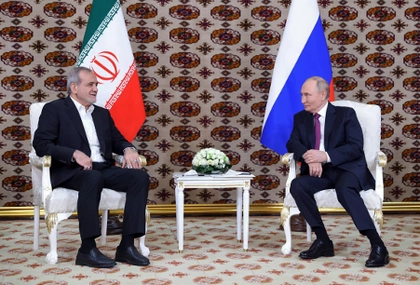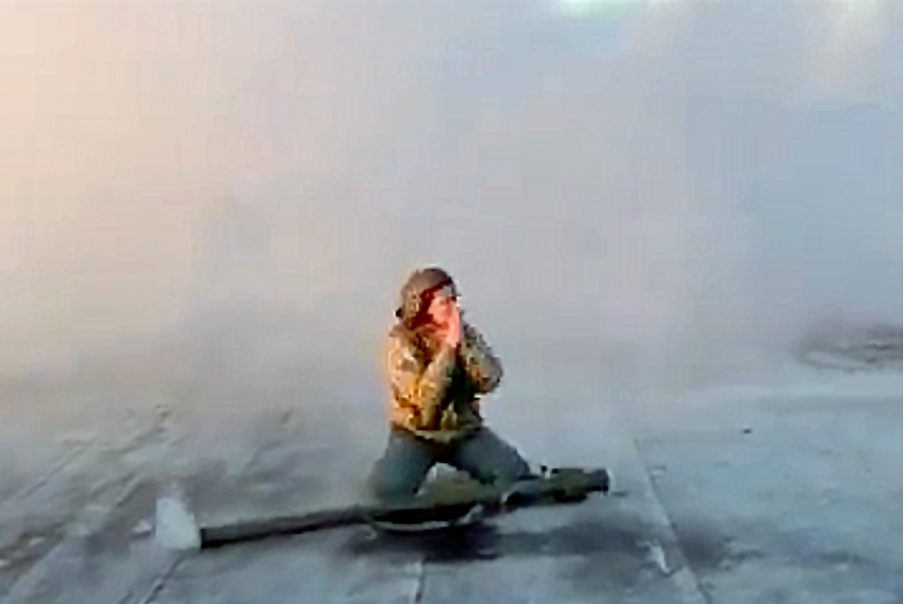On Dec. 8 2022, Russian arms trafficker Viktor Bout had his 25-year prison sentence cut short by the Biden administration to secure the release of WNBA player Brittney Griner, held in a Mordovian penal colony on trumped-up drug possession charges. Outgoing US President Joe Biden was lambasted by MAGA Republicans for pandering to the Kremlin’s maximalist demands and ultimately walking away with a raw deal.
All the more troubling than trading Russia’s “Merchant of Death” for a 32-year-old athlete who unwittingly fell afoul of local laws was the dangerous precedent this asymmetrical exchange set – namely rendering it open season for despotic regimes to resort to hostage-taking as a tool of statecraft.
JOIN US ON TELEGRAM
Follow our coverage of the war on the @Kyivpost_official.
The fact that FSB-linked hitman Vadim Krasikov was pardoned by German authorities in early August as part of a high-profile East-West prisoner swap, despite serving life behind bars for carrying out a 2019 contract killing in central Berlin, is a case in point of how Russia uses groundlessly-detained Western citizens and prisoners of conscience as bargaining chips for its nefarious ends.
As with Krasikov, negotiating Bout’s repatriation was not an altruistic deed but rather a calculated move predicated on his usefulness to the Kremlin. Having joined the ultranationalist LDPR Party after returning to Russia, Bout’s foray into frontline politics fueled speculation that he may have finally called time on his gun-running career. Nonetheless, recent revelations that he is on the cusp of brokering $10-million worth of automated weaponry sales to the Ansarallah movement suggest otherwise.

Russia Launches Record 55 Satellites, Including 2 Iranian-Made
Admittedly, Bout may not have received Russian President Vladimir Putin’s blessings for his post-incarceration wheeling-and-dealing given the immediate threat his Yemeni clients pose to Russia’s regional allies such as Saudi Arabia and the UAE. It is worth remembering that the Houthis launched a missile attack on an Aramco oil depot in Jeddah two years ago, as well as a deadly drone strike near Abu Dhabi Airport. The aim was to establish deterrence and settle scores with resource-rich family dictatorships for foisting what the UN dubbed “the world’s worst humanitarian crisis” upon Yemen.
Following a 2014 coup d’état in the Arabian Peninsula’s poorest nation, then Saudi Defense Minister Mohammed Bin Salman (MbS) waged an all-out military campaign and economic siege against the Iranian-backed Houthi insurgents with help from the UAE, hoping to bomb and starve them into submission. That said, the Houthis’ capacity to “bring the war home” and imperil national security in expat-driven sheikhdoms which pride themselves on being safe havens for foreign direct investment forced the aggressors to pursue an off-ramp. The puritanical strand of Shia Islam the Houthis adhere to has, however, left them incorruptible and immune to being bought off by their neighbors’ blood-soaked petrodollars.
Saudi Arabia’s rationale for entertaining Chinese-initiated peace talks with Iran last year was the misguided notion that normalizing relations would convince the Islamic Revolutionary Guard Corps (IRGC) to yank on Ansarallah’s leash. Though routinely labelled an “Iranian proxy,” the Houthis have far greater agency and latitude than was presumed to be the case before Oct. 7, 2023. The Red Sea Crisis they manufactured in defense of Palestine bears testament to how ideology supersedes all other material or geostrategic considerations for this increasingly problematic non-state actor. By quarter 1, 2024, year-on-year maritime traffic through the Suez Canal and Bab El-Mandeb Strait had halved thanks to Houthi-led piracy.
Fault lines
The Kremlin’s underhanded cooperation with Yemen’s de facto government is just the latest example of its ineptitude at navigating deeply complex Middle Eastern rivalries. The Russian Envoy in Tehran was summoned twice last year by Iran’s Ministry of Foreign Affairs over Moscow endorsing the UAE’s territorial claims to three disputed Persian Gulf islands: Abu Musa, Greater Tunb and Lesser Tunb. Needless to say, arming and rehabilitating the Houthis is a whole new ball game that risks blowing apart Russia’s alliance with the Gulf Cooperation Council (GCC). Saudi Arabia’s holding pattern vis-à-vis BRICS accession coupled with Crown Prince MbS’ no-show at the Kazan Summit last week portends possible fault lines emerging.
Saudi-Russia ties under the Biden administration have been on a “sugar high.” The two OPEC+ heavyweights famously colluded back in December 2022 to slash oil output by two million barrels a day and send crude prices soaring in open defiance of Washington’s wishes. Riyadh also threatened to sell off its European debt holdings if the Group of Seven (G7) went ahead with plans to seize $300-billion in frozen Russian assets while Saudi investment company Kingdom Holding ploughed over $500 million into Gazprom, Roseneft and LukOil when the Ukraine conflict began. Yet, Russia’s decision to furnish the Houthis with satellite data and Donald Trump’s prospective re-election could turn this thriving partnership on its head.
As signatories to the Abraham Accords which host CENTCOM’s Al Dharfa Air Base and the US Navy’s Fifth Fleet respectively, the UAE and Bahrain will be considered fair game by the Islamic Republic’s foot soldiers should the shadow war between Israel and Iran spiral out of control. Whereas the Bahrainis have painted an even bolder target on their backs by agreeing to be part of Operation Prosperity Guardian, Russia has much more to lose if instability arises in the Emirates. Besides bilateral trade tripling to $7 billion during the last three years, Dubai has positioned itself as “Club Med” for sanctioned oligarchs no longer welcome in legacy Western capitals and a relocation hub for white collar Russians employed by multinational firms.
Notwithstanding the GCC states’ continued willingness to invest in Russia, facilitate people-to-people exchanges via mutual visa waivers, mediate regular POW exchanges and send high-level delegations to flagship annual events like the St. Petersburg International Economic Forum (SPIEF) as well as Russian Energy Week, Putin appears prepared to sacrifice a buoyant relationship with moderate Arab nations on the altar of burying Pax-Americana. Apart from their vast pool of battle-hardened manpower equally gung-ho about ending Western hegemony and paving the way for an “equitable global redistribution of power”, the Houthis – a US-proscribed terrorist organization – do not present any real value proposition to Moscow.
The Kremlin’s move to arm this IRGC appendage and lure Yemen into its sphere of influence could prompt Israel to intensify intelligence sharing with Ukraine on the “enemy of my enemy is my friend” basis, much like a similarly ambivalent South Korea was galvanized into action amid credible allegations of North Korean boots on the ground in Russia’s Far East. Should Tel Aviv decide to go for broke and provide Ukraine with the state-of-the-art “Iron Dome” air defense system it has long requested as reprisal for an impending Russo-Iranian security pact, Putin will have consigned the pariah state he presides over to further isolation by pitting yet another West Asian “fence-sitter” with a sizeable Russian-speaking community against it.
The views expressed in this opinion article are the author’s and not necessarily those of Kyiv Post.
You can also highlight the text and press Ctrl + Enter






